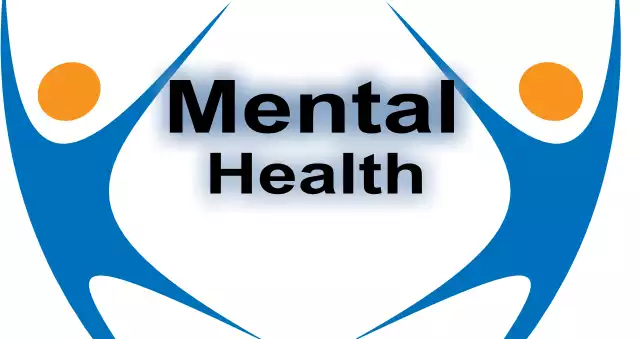Anxiety Disorder Awareness
Imagine waking up each day to an invisible weight pressing on your chest, your mind incessantly replaying a loop of worst-case scenarios.
For millions worldwide, this isn’t just imagination—it’s their reality.
Welcome to the world of anxiety disorders, a mental health condition that often lurks in the shadows yet impacts nearly one in five adults annually.
In our increasingly fast-paced and uncertain world, Anxiety Disorder Awareness has never been more crucial.
Despite its prevalence, anxiety is frequently misunderstood or dismissed as mere nervousness or stress.
This lack of awareness can lead to those suffering feeling isolated and unsupported.
In this article, we aim to shine a light on the complexities of anxiety disorders, demystify their symptoms, and break down barriers to effective treatment and support systems.
Through increased understanding and compassionate dialogue, we can foster an environment where individuals feel empowered rather than stigmatized by their mental health struggles.
Anxiety disorders are a common and serious mental health issue that affects millions of individuals worldwide.
Despite its prevalence, there is still a lack of understanding and awareness surrounding this condition.
This lack of awareness often leads to misconceptions and stigmatization, leaving those affected feeling isolated and alone.
It is crucial to raise awareness about anxiety disorders to not only reduce the stigma but also to educate others about the signs, symptoms, and available treatments.
In this article, we will delve into the world of anxiety disorders, shedding light on this often misunderstood condition.
We will explore the different types of anxiety disorders, their causes and symptoms, as well as the impact they can have on an individual’s daily life.
Furthermore, we will discuss the importance of seeking help and the various treatment options available.
It is time to break the silence and bring attention to this significant mental health issue.
Together, we can create a more understanding and supportive society for those living with anxiety disorders.
Table of Contents Anxiety Disorder Awareness
Demystifying the truth behind anxiety
Anxiety is a complex and multifaceted emotional experience that affects individuals in various ways.
It is important to understand that anxiety is not simply a matter of being overly worried or stressed.
Rather, it is a legitimate mental health condition that can significantly impact a person’s daily life and overall well-being.
Contrary to popular belief, anxiety is not a sign of weakness or a character flaw, but rather a legitimate medical condition rooted in a combination of genetic, environmental, and physiological factors.
It can manifest differently in each individual, with symptoms ranging from excessive worrying and restlessness to physical sensations such as rapid heartbeat and shortness of breath.
By demystifying the truth behind anxiety, we can advocate for a better understanding and support system for those affected by this often misunderstood disorder.
Common symptoms of anxiety disorder
Individuals with anxiety disorders commonly experience a range of symptoms that can significantly impact their daily functioning.
One prevalent symptom is persistent and excessive worry or fear, often accompanied by an inability to control these anxious thoughts.
Physical symptoms, such as increased heart rate, trembling, sweating, and gastrointestinal distress, may also be present.
Individuals with anxiety disorders may experience restlessness, irritability, and difficulty concentrating, which can hinder their ability to perform everyday tasks or engage in social interactions.
Additionally, sleep disturbances, such as insomnia or restless sleep, are frequently reported.
It is crucial to recognize these common symptoms of anxiety disorders in order to promote early identification and provide appropriate support and intervention for those affected.
Understanding the different types
To fully understand anxiety disorders, it is important to recognize that there are different types, each characterized by unique symptoms and triggers.
Generalized anxiety disorder (GAD) is marked by excessive worry and tension about various aspects of life, often without a specific cause or focus.
Panic disorder involves recurrent panic attacks, which are intense episodes of fear and physical discomfort that may include rapid heartbeat, chest pain, and a sense of impending doom.
Social anxiety disorder involves an intense and persistent fear of social situations, leading to avoidance and feelings of self-consciousness.
Specific phobias are characterized by an intense fear of a particular object or situation, such as heights, spiders, or flying.
Lastly, obsessive-compulsive disorder (OCD) is characterized by intrusive thoughts (obsessions) and repetitive behaviors (compulsions) aimed at reducing anxiety.
By understanding the different types of anxiety disorders, we can better support individuals in identifying and managing their symptoms, leading to improved overall well-being and quality of life.
Strategies for managing anxious thoughts
One effective strategy for managing anxious thoughts is cognitive behavioral therapy (CBT).
CBT involves identifying and challenging negative thought patterns and replacing them with more positive and realistic thoughts.
This can be done through techniques such as thought stopping, where individuals learn to recognize when their thoughts are becoming anxious and actively interrupt them.
Additionally, relaxation techniques such as deep breathing exercises and progressive muscle relaxation can help reduce anxiety symptoms by promoting a sense of calm and relaxation.
Engaging in regular physical exercise has also been shown to be beneficial in managing anxious thoughts, as it releases endorphins and reduces tension in the body.
Finally, establishing a healthy lifestyle with adequate sleep, a balanced diet, and regular self-care practices can contribute to overall mental well-being and reduce anxiety levels.
By utilizing these strategies, individuals can take an active role in managing their anxious thoughts and improving their quality of life.
Importance of seeking professional help
Seeking professional help is crucial for individuals experiencing anxiety disorders.
While self-help strategies can be beneficial, they may not always be sufficient in addressing the complex nature of anxiety disorders.
Professional mental health providers, such as psychologists and psychiatrists, have the knowledge and expertise to accurately diagnose and treat anxiety disorders.
They can provide evidence-based therapies, such as cognitive behavioral therapy (CBT) or medication management, that are tailored to the individual’s specific needs.
Additionally, these professionals can offer a safe and supportive environment for individuals to explore their thoughts, emotions, and behaviors related to anxiety.
Collaborating with a professional can lead to a more comprehensive and effective treatment approach, ultimately improving the individual’s overall well-being and quality of life.
Coping mechanisms for daily life
Developing healthy coping mechanisms can greatly improve the daily life of individuals dealing with anxiety.
Engaging in regular physical exercise, such as yoga or jogging, can help reduce stress levels and promote a sense of relaxation.
Practicing deep breathing exercises and mindfulness techniques can also be beneficial in calming the mind and grounding oneself in the present moment.
Additionally, maintaining a balanced and nutritious diet, getting enough sleep, and prioritizing self-care activities can contribute to overall well-being and resilience in the face of anxiety.
Seeking social support from friends, family, or support groups can provide a valuable outlet for expressing emotions and receiving understanding and encouragement.
It is important for individuals to explore and experiment with different coping strategies to find what works best for them, and to remember that self-care and self-compassion are crucial components of managing anxiety on a daily basis.
The impact of anxiety disorder
Living with an anxiety disorder can have a profound impact on an individual’s overall well-being and quality of life.
It can manifest in various ways, affecting their emotional, physical, and social functioning.
On an emotional level, anxiety disorders often lead to persistent feelings of fear, worry, and unease, making it difficult to relax or enjoy everyday activities.
Physically, individuals may experience symptoms such as rapid heartbeat, shortness of breath, muscle tension, and fatigue, which can significantly impair their ability to perform daily tasks.
Socially, anxiety can limit social interactions, causing individuals to avoid certain situations or isolate themselves from others.
This can result in feelings of loneliness and a reduced sense of connectedness.
Moreover, anxiety disorders can interfere with academic or professional pursuits, leading to decreased productivity and achievement.
It is important to raise awareness about the impact of anxiety disorders and provide support and resources for those affected, in order to foster understanding, empathy, and effective treatment options.
Breaking the stigma surrounding anxiety
In order to foster a better understanding and support system for those living with anxiety disorders, it is crucial to address and break the stigma that surrounds this condition.
Stigma often arises from misconceptions and a lack of knowledge about mental health, leading to judgment, isolation, and discrimination.
By promoting open and honest conversations about anxiety, we can challenge the misconceptions and stereotypes associated with it.
This includes highlighting the fact that anxiety disorders are medical conditions, not a personal weakness or character flaw.
It is important to emphasize that seeking help and treatment for anxiety is a sign of strength, courage, and self-care.
By creating a safe and welcoming environment for individuals to share their experiences, we can work towards building a more empathetic society that supports and uplifts those affected by anxiety disorders.
In conclusion, it is important to raise awareness and understanding about anxiety disorders.
These disorders are complex and can greatly impact an individual’s daily life.
Through education and support, we can lessen the stigma surrounding anxiety disorders and provide resources for those who may be struggling.
Let us all work towards creating a more compassionate and understanding society for those with anxiety disorders.
Remember, seeking help is a sign of strength, not weakness.
Thank you for taking the time to learn more about this important topic.
FAQ
What are the common symptoms of anxiety disorders and how can they impact daily life?
Common symptoms of anxiety disorders include excessive worry, restlessness, irritability, difficulty concentrating, muscle tension, and sleep disturbances.
These symptoms can significantly impact daily life by causing disruptions in work, relationships, and overall well-being.
They may lead to avoidance of certain situations, decreased productivity, and feelings of distress and isolation.
In severe cases, anxiety disorders can prevent individuals from engaging in normal daily activities, leading to social withdrawal and impaired functioning.
Seeking professional help and implementing coping strategies are essential in managing the symptoms and minimizing the impact on daily life.
How prevalent are anxiety disorders in society today and what factors contribute to their development?
Anxiety disorders are highly prevalent in society today, affecting approximately 18% of the adult population in the United States.
Factors contributing to their development include genetic predisposition, brain chemistry, personality traits, environmental stressors, traumatic experiences, and social factors.
The fast-paced, competitive nature of modern life, increased use of technology, societal pressures, and lack of access to mental health resources also contribute to the rise in anxiety disorders.
Early identification, proper treatment, lifestyle modifications, and support systems play a crucial role in managing and reducing the impact of anxiety disorders on individuals and society.
What are some effective strategies for managing anxiety and seeking support for those struggling with anxiety disorders?
Some effective strategies for managing anxiety include practicing relaxation techniques, such as deep breathing or meditation, engaging in regular physical activity, maintaining a healthy lifestyle with a balanced diet and adequate sleep, talking to a therapist or counselor, participating in support groups, and seeking medication or other medical interventions if necessary.
It is crucial to reach out for support from friends, family, or mental health professionals to cope with anxiety disorders effectively and improve overall well-being.
Remember, seeking help is a sign of strength, not weakness.
How does stigma surrounding mental health impact individuals with anxiety disorders and their ability to seek help?
The stigma surrounding mental health can prevent individuals with anxiety disorders from seeking help due to fear of judgment, shame, or discrimination.
This can lead to delays in seeking treatment, increased feelings of isolation, and exacerbation of symptoms.
Overcoming stigma is crucial in promoting early intervention and access to support services for those struggling with anxiety disorders.
What resources are available for individuals looking to learn more about anxiety disorders and how to support loved ones who may be struggling?
For individuals seeking to learn more about anxiety disorders and support loved ones, resources like therapy, self-help books, online forums, support groups, helplines, and educational websites such as the Anxiety and Depression Association of America, National Alliance on Mental Illness, and Mental Health America are valuable.
These platforms offer information, guidance, coping strategies, and connections with others who understand their struggles.
Additionally, seeking professional help from mental health professionals like therapists, counselors, or psychiatrists is crucial for accurate diagnosis, treatment, and ongoing support for both the individual and their loved ones.







